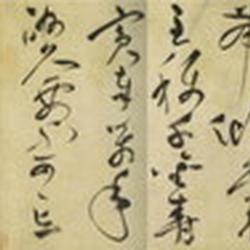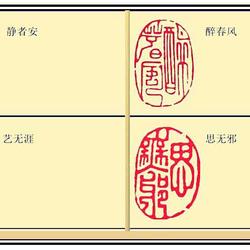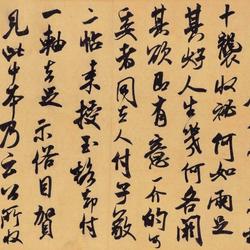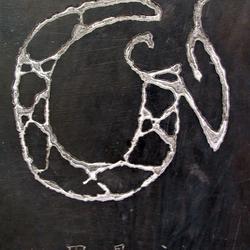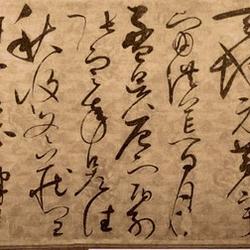Zhao Mengfu's "Red Cliff Ode Before and After"
【Name】Before and after Chibi
【Category】Regular Script
【Author】Zhao Mengfu
【Form】Paper
【Era】Yuan
[Original size] A total of 11 pages, 21 pages, each page is 27.2 cm in length and 11.1 cm in width.
[Current Situation of Cultural Relics] Collection of the National Palace Museum, Taipei
"Former Chibi Fu"
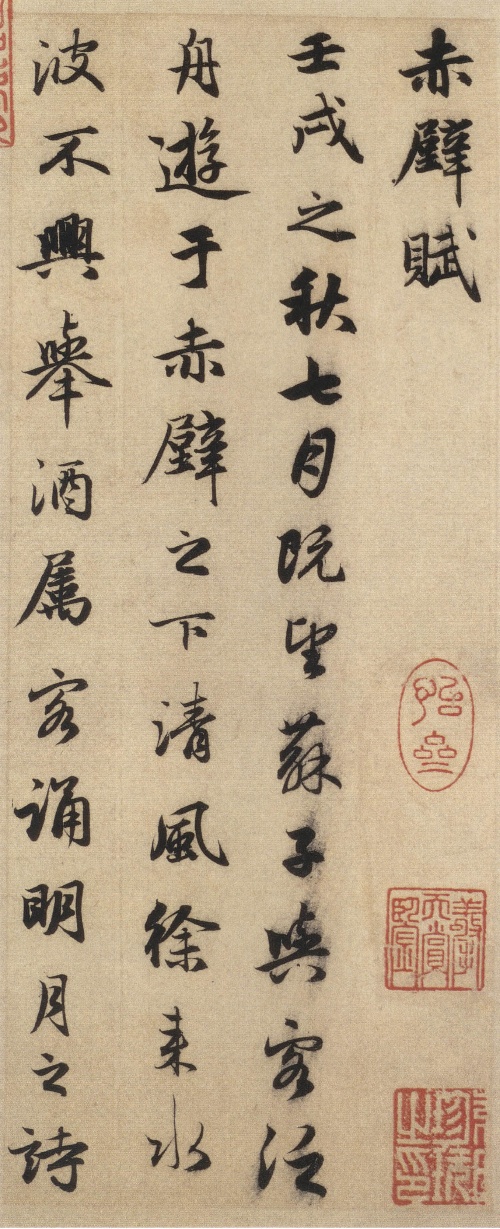
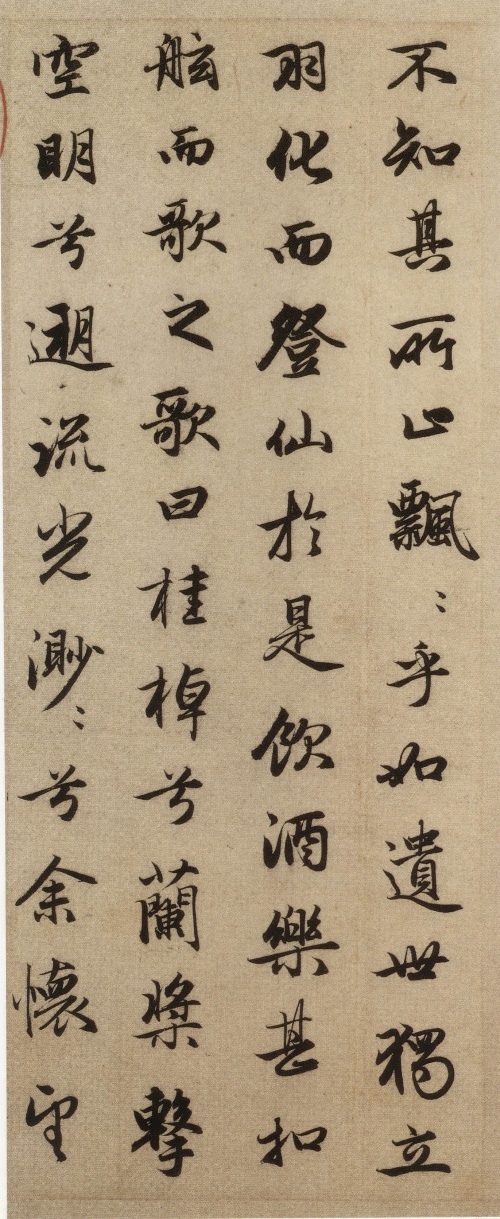
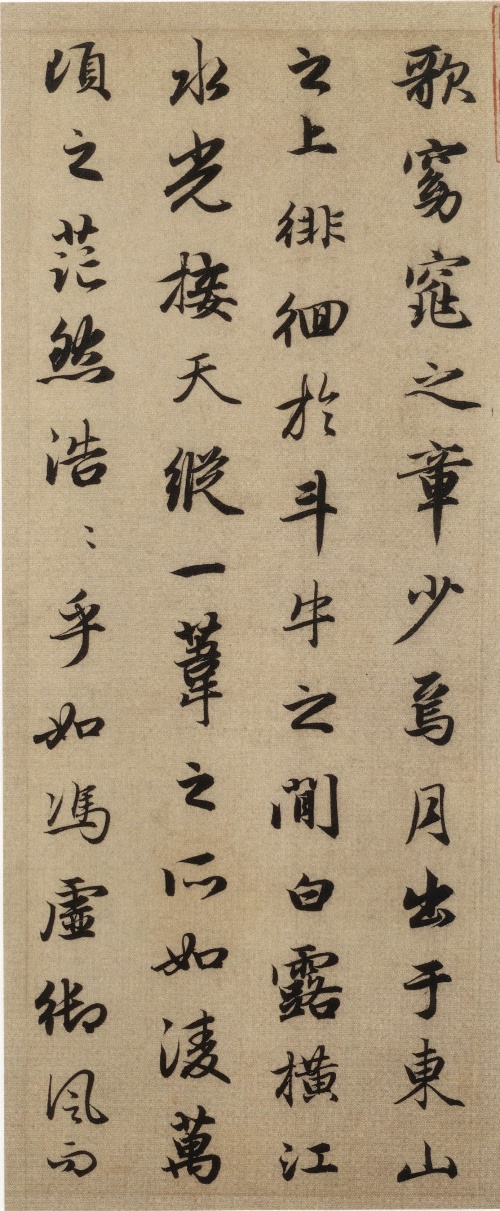
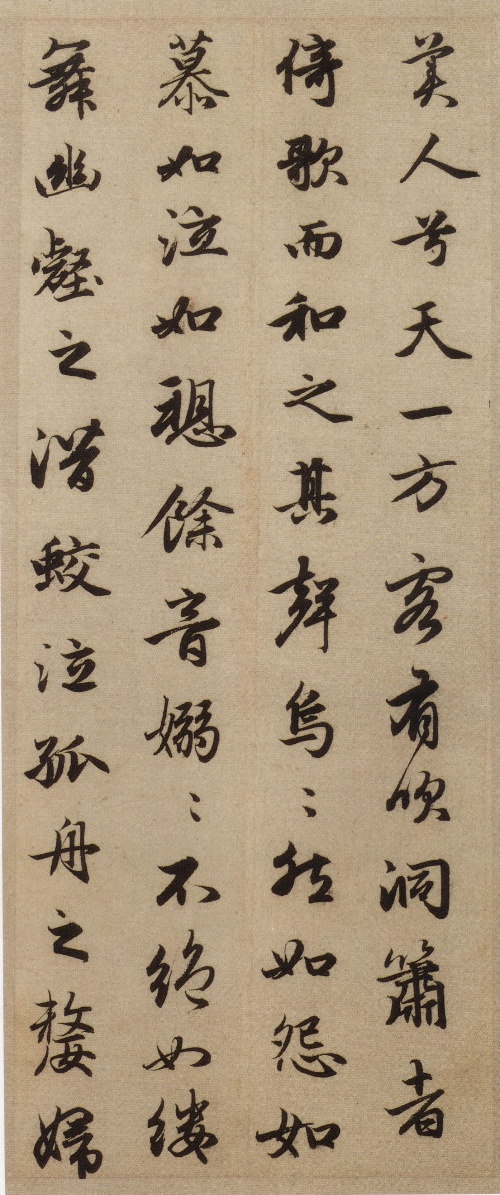
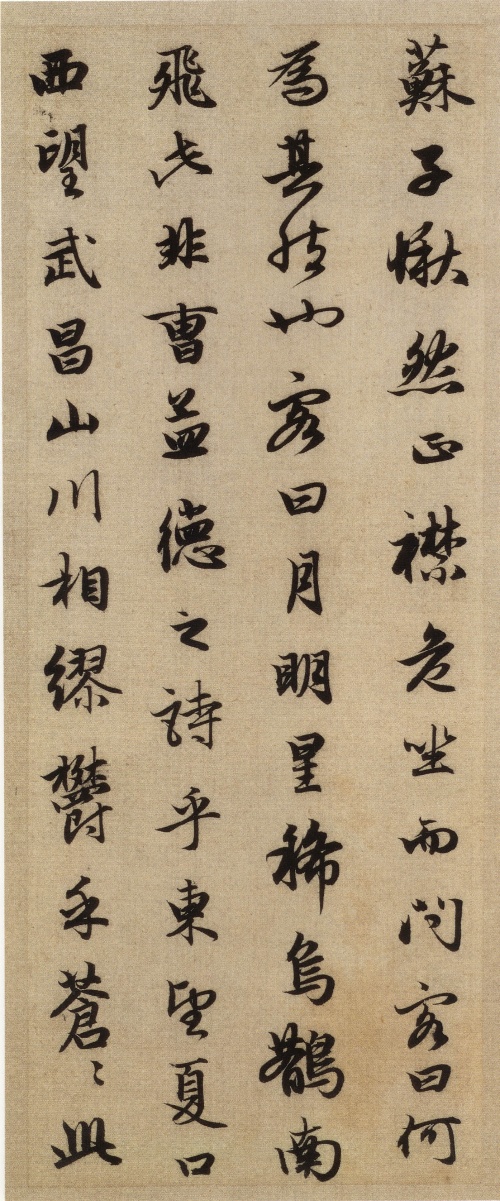
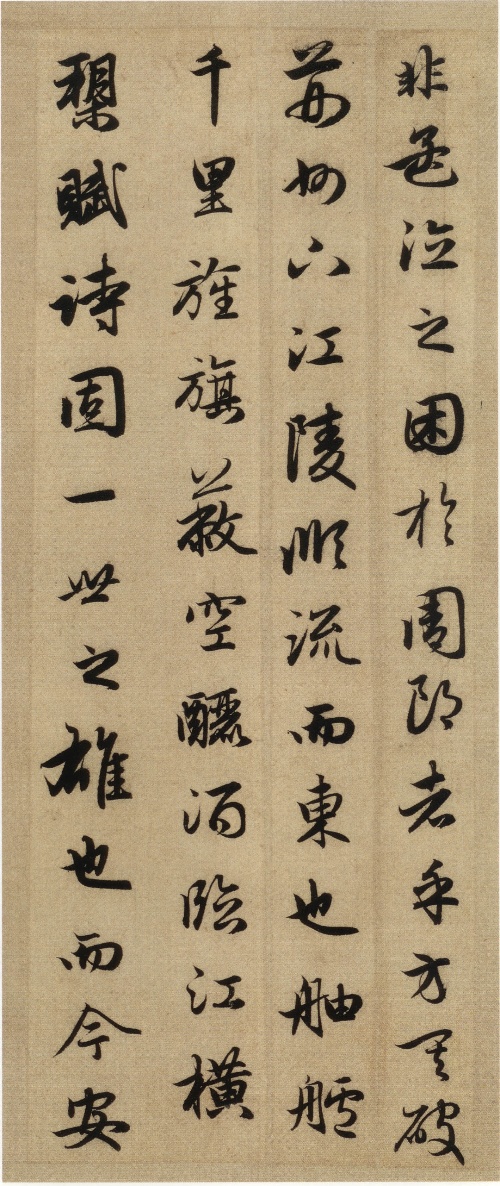
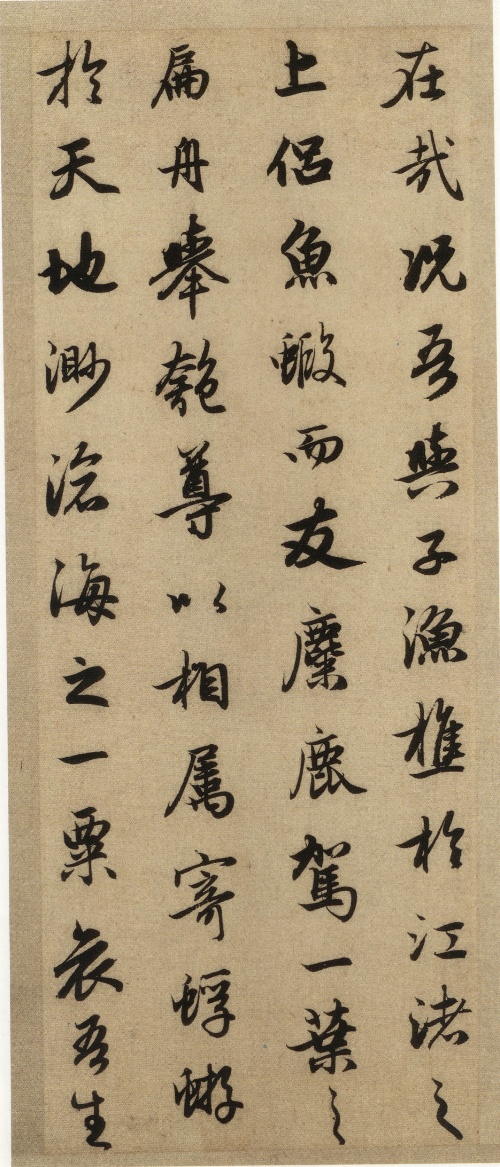
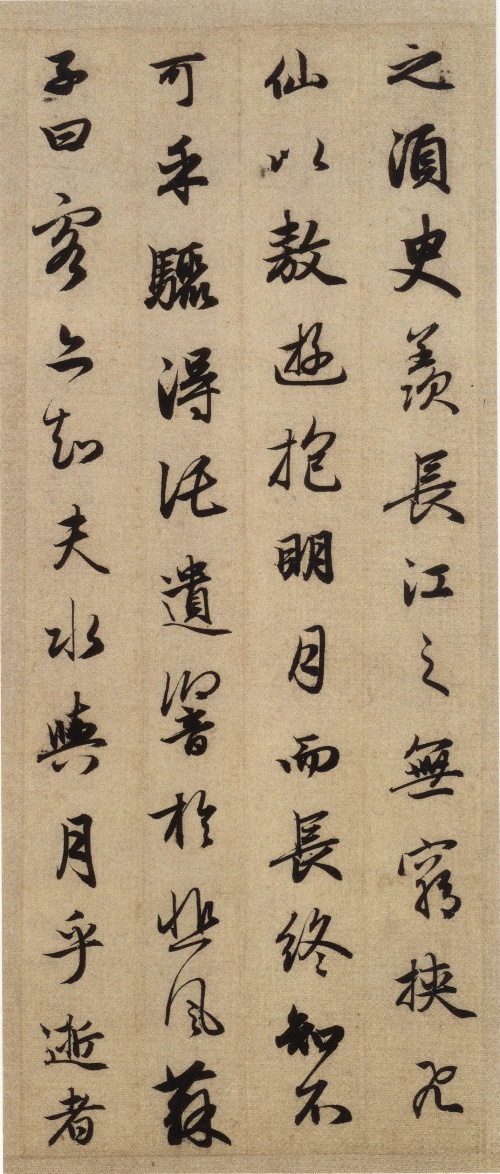
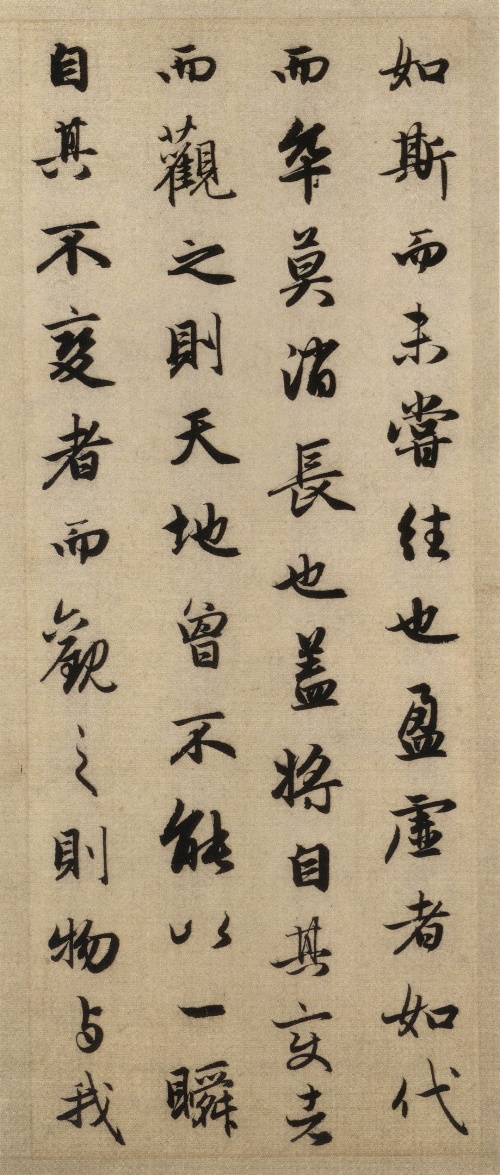
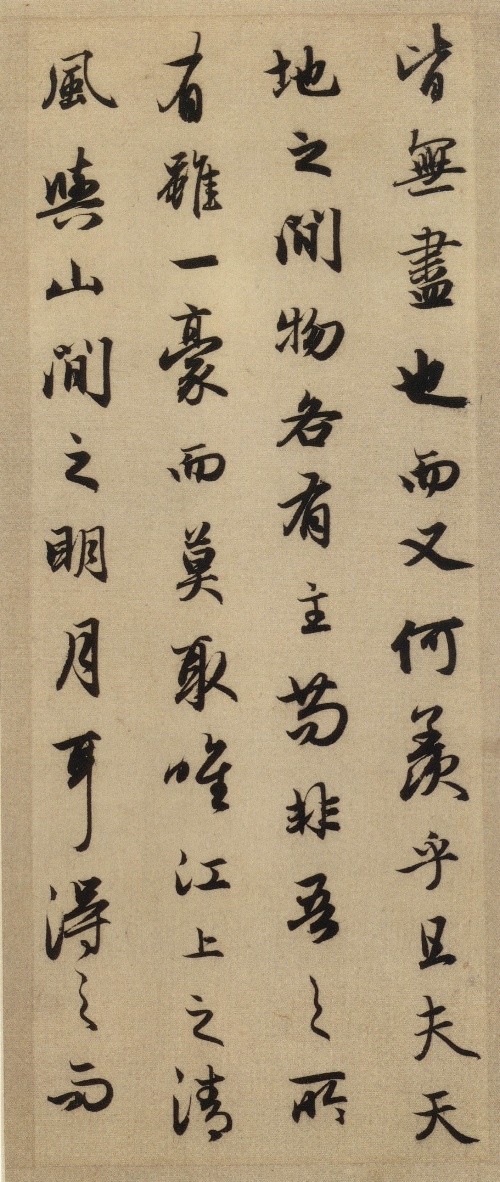
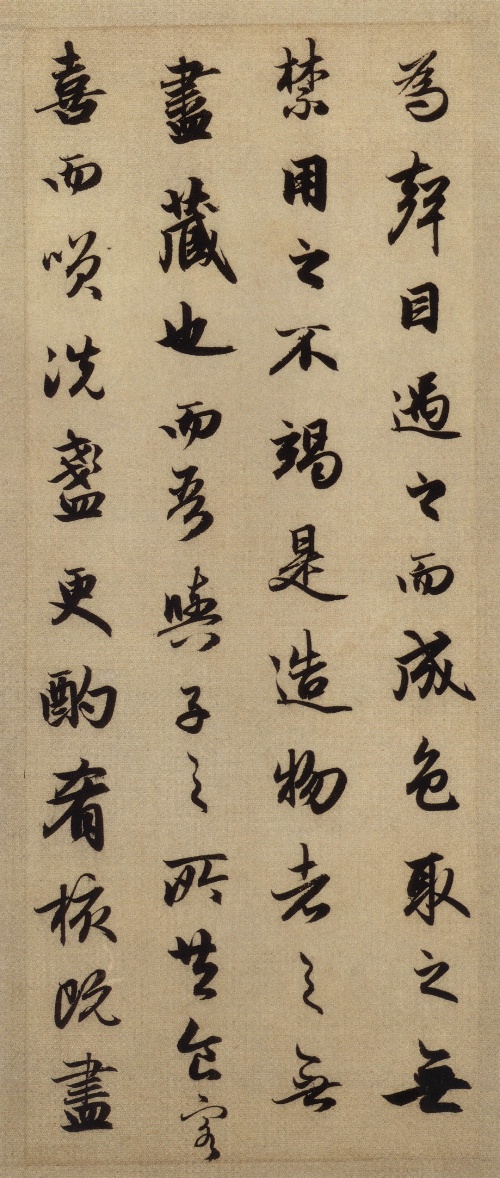
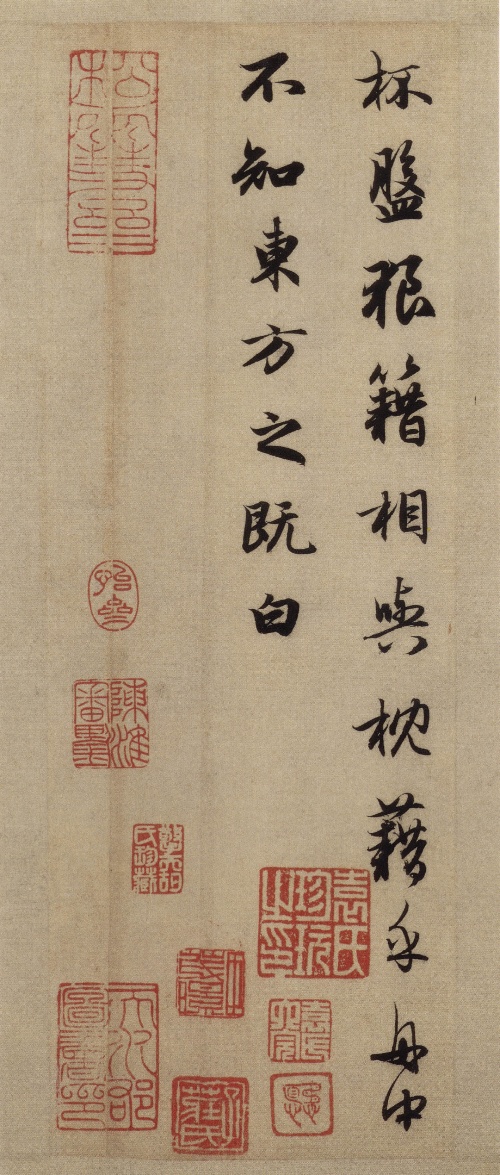
"Hou Chibi Fu"
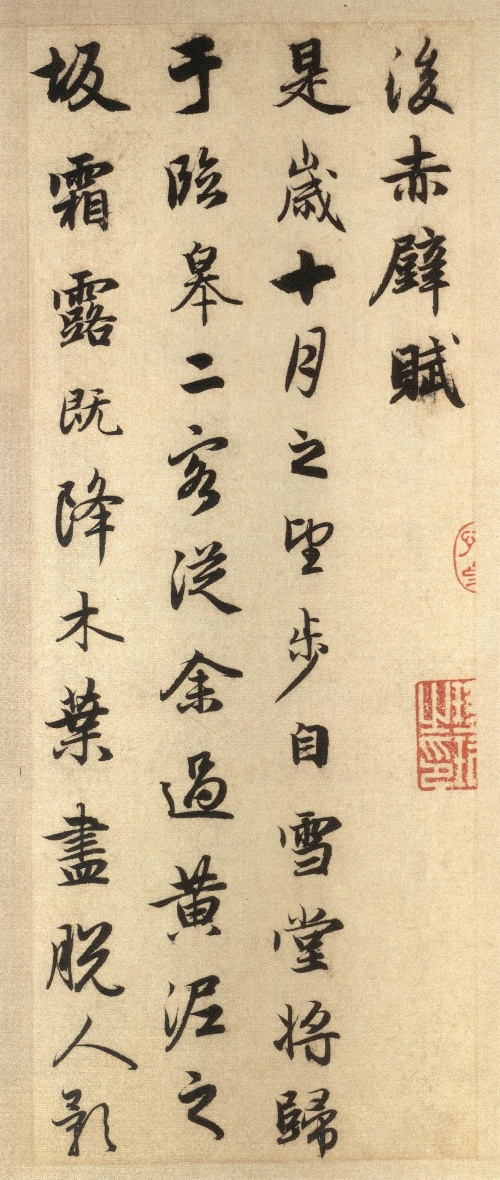
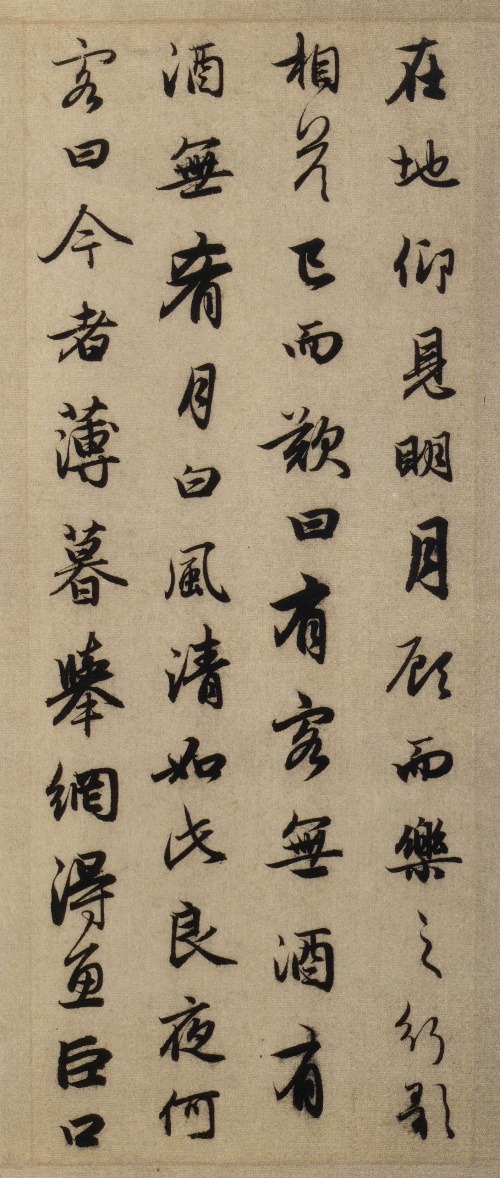
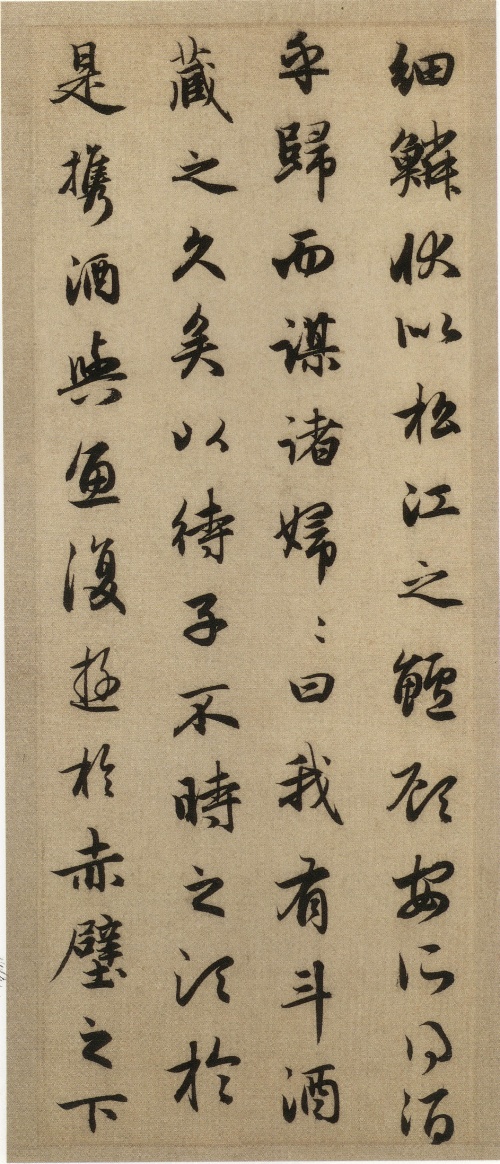
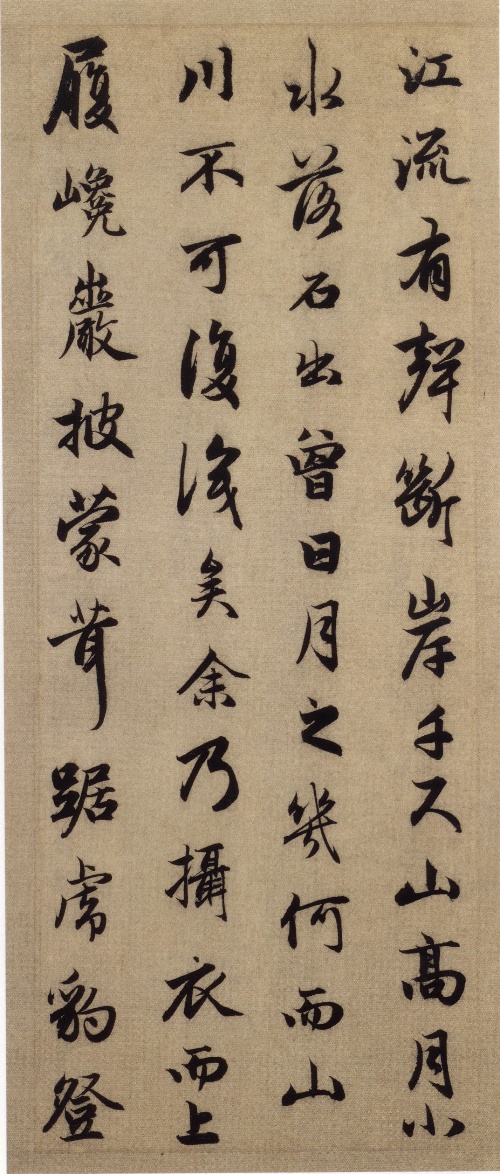
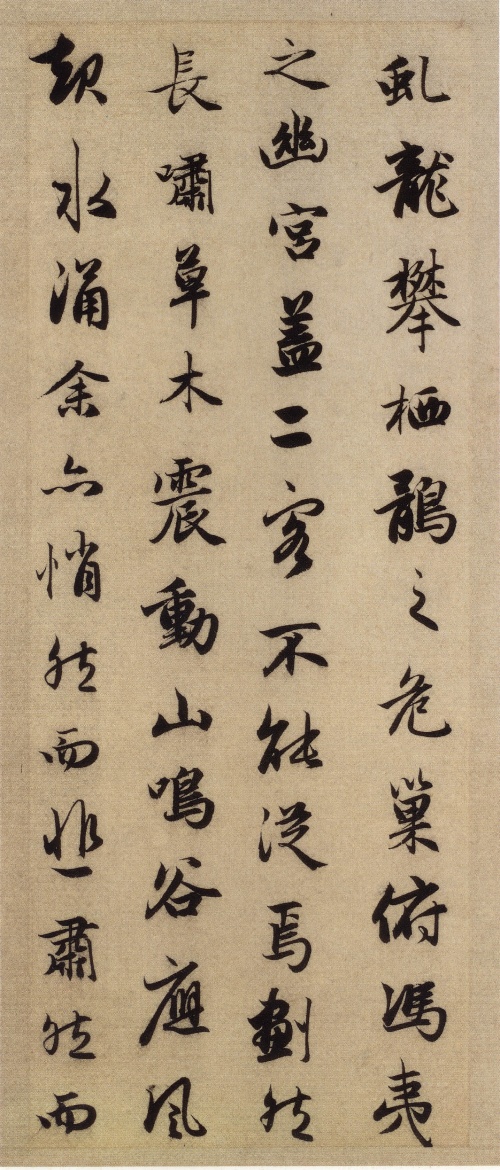
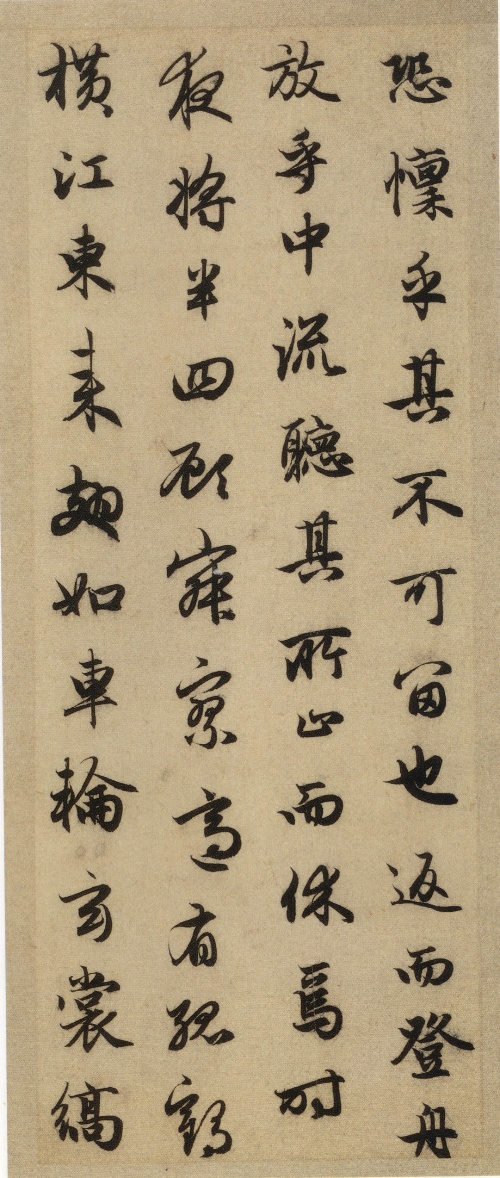
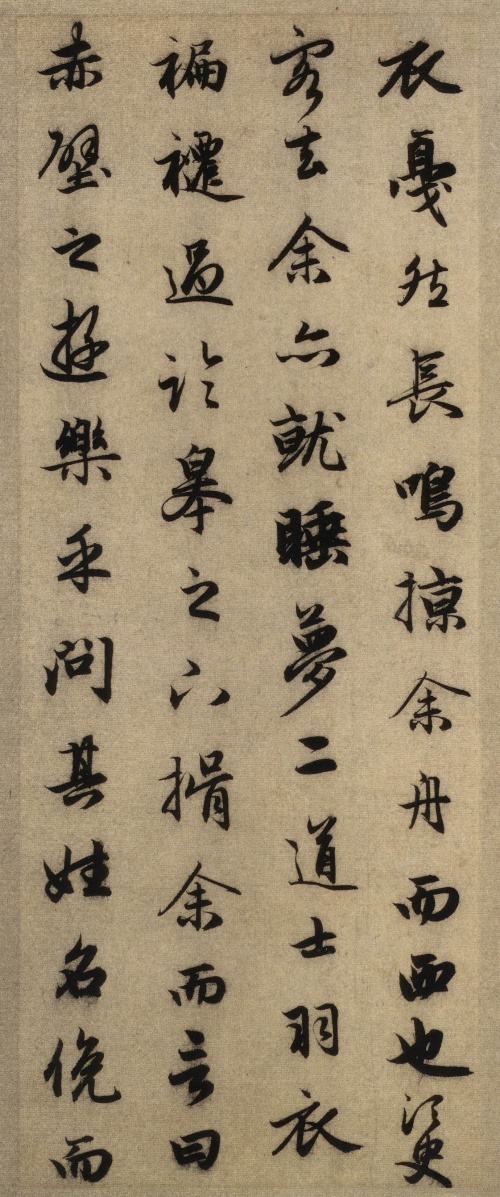
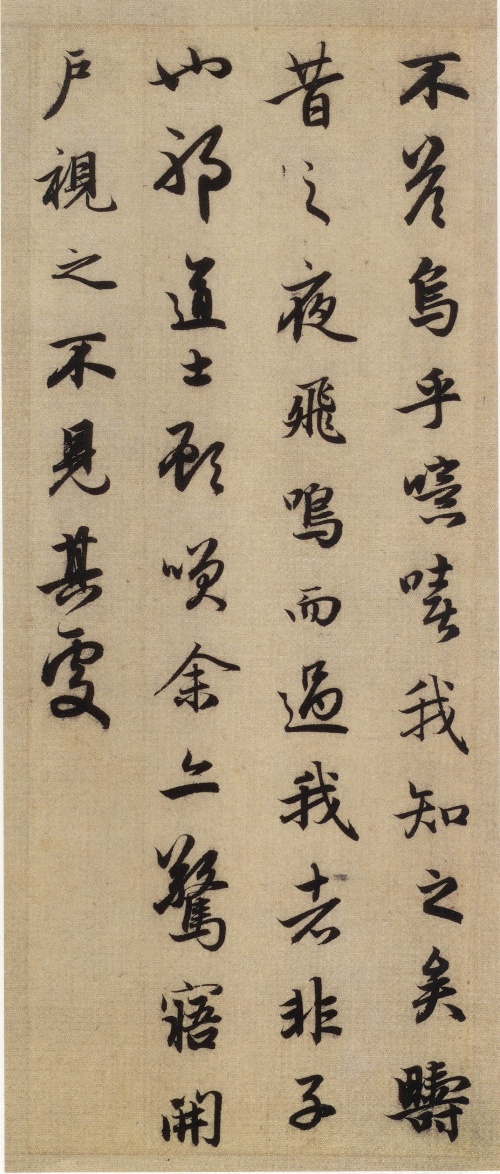
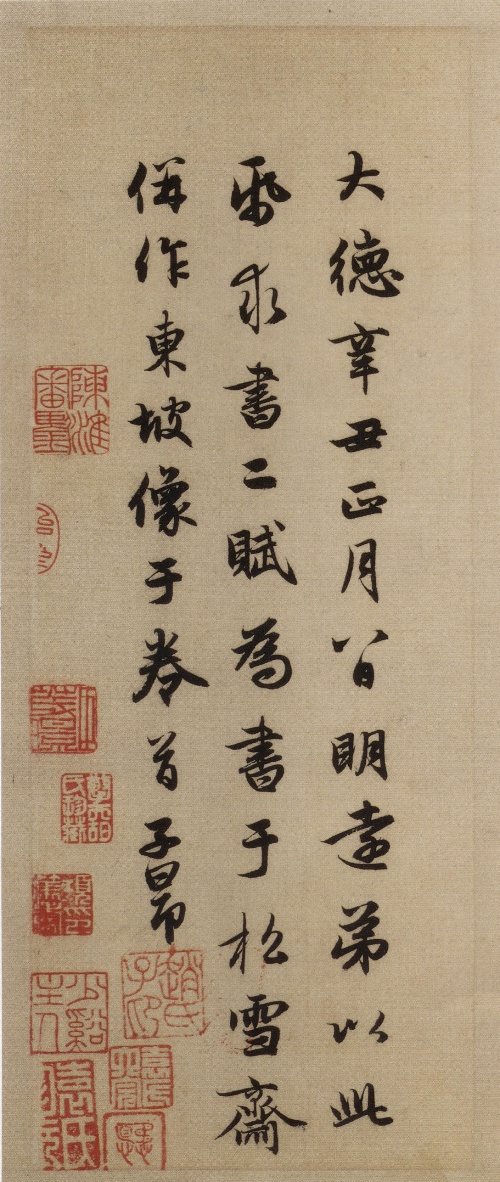
[Description of the work]
"The Front and Back Chibi Fu" is also known as "The Second Chibi Fu Tie". This post is a work of cursive script written in response to someone's request. There are 81 lines in total in the whole post, including 46 lines of "Chibi Ode", 32 lines of "Hou Chibi Ode", and three lines of signature. According to the signature "the eighth day of the first lunar month of Dade Xin Shukan Chou", the time after the book should be the fifth year of Dade, Emperor Shizu of the Yuan Dynasty, that is, 1301 AD. In other words, this post was written by Zhao Mengfu when he was forty-eight years old. Although the two poems were written at the same time, their styles are slightly different. The strokes used in the front strokes have large fluctuations, and the strokes are strong and slightly jerky. Later, he used a gentle and free-spirited brush, calming the spirit of the Song Dynasty, and the writing style was solid and slightly mature. Looking at the whole post, the writing is vigorous and free. The thin parts are like sand seal mud, and the thick parts are like iron wrapped in cotton. If you pull the silk ribbon in the quick place, you can cut off a rhinoceros and elephant; in the soothing place, you can be as graceful and dignified as an elegant scholar facing the wind. The lines throughout the text are clear and calm, the strokes are round and vigorous, the grace is flowing, the style is connotative, and the spirit is elegant. It captures the romantic charm of the Wei and Jin Dynasties. It can be called a rare treasure of the regular script of Zhao Mengfu, the master of calligraphy in the Yuan Dynasty.
Because of his status as the grandson of an old prince, Zhao Mengfan could never get rid of his inner depression and gloom. He was often troubled by the involuntary advances and retreats, so the world of pen and ink became a pure land for him. His specific outlook on life has also formed his special outlook on art - extremely yin and yang but blending Taihe, and his calligraphy art presents a gentle and moderate atmosphere. He always approaches French classics with a "neutral" attitude. He incorporated Zhong Yao's simplicity and depth, Xi's unrestrained and subtle expression, Xian's unrestrained grace, Beihai's rising proudly on the side, Dongpo's leisurely and majestic, and Mi Fuxue's extraordinary dangers. Bone strength, flowing beauty but not sweet. It is precisely based on his profound skills, rich knowledge, and elegant temperament that he has created Zhao Mengfu's calligraphy style that is charming, graceful, elegant, concise, well-organized, and mature in brushwork.
Generally speaking, the calligraphy of the Yuan Dynasty is an era of retrospection and innovation. Based on the regular calligraphy of the Tang Dynasty, various schools of the Yuan Dynasty tried their best to expand the calligraphy of the Second Jin Dynasty and formed a generation style. After Kublai Khan, the founder of the Yuan Dynasty, unified China, he used his talents and strategies to make friends with talented Han people, discovered talents from all aspects, and tried to restore the old system with slight changes. Although he was relatively open in culture and thought, he There were strict restrictions on the Han people in terms of military affairs, financial power, and the recruitment of talents for imperial examinations. As a result, knowledgeable people could not seek utilitarian gains in official careers, but still turned to literature and art. In the field of calligraphy, Zhao Mengfu was one of the most outstanding representatives.
【About the Author】
Zhao Mengfu (1254-1322), named Zi'ang, also known as Songxue, Songxue Taoist, also known as Shuijinggong Taoist and Oubo. In his middle age, he was named Mengfu. He was Han nationality and a native of Wuxing (now Huzhou, Zhejiang). A famous painter in the Yuan Dynasty, one of the four masters of regular script (Ouyang Xun, Yan Zhenqing, Liu Gongquan, and Zhao Mengfu). Zhao Mengfu was erudite and talented. He was good at poetry and prose, understood economics, was good at calligraphy and fine painting, was good at epigraphy and stone, knew the rules and regulations, and understood appreciation. In particular, he achieved the highest achievements in calligraphy and painting, creating a new style of painting in the Yuan Dynasty, and was known as the "Crown of the Yuan Dynasty". He is also good at seal script, official script, Zhen script, Xing script, and cursive script, and is especially famous for his regular script and running script.
"Qian Chibi Fu" [original text]
In the autumn of Renxu, in the seventh month, Su Zi and his guests were boating under Red Cliff. The breeze comes slowly and the water waves are calm. Lifting wine to the guests, reciting poems about the bright moon, and singing graceful chapters. After a while, the moon rose above the east mountain, wandering among the bullfights. White dew flows across the river, and the water reaches the sky. Even though a reed is like this, thousands of hectares are at a loss. The vastness is as if Feng Xu is riding the wind without knowing where it stops; the flutteringness is as if he is left alone in the world, becoming an immortal and ascending to immortality. So he drank and enjoyed himself very much, and he buckled down and sang. The song says: "The orchid oar is hanging on the osmanthus, and the light is shining in the sky. It is dim and dim in my arms, and I look at the beauty in the sky." There is a guest who blows the sound of the cave, and he listens to the song and harmonizes with it. His voice sounds like resentment. Like admiration, like crying, like complaining; the lingering sound is lingering, like a wisp; the dragon dancing in the secluded gully, weeping in the lonely boat. Su Zi was stunned, sitting upright, and asked the guest: "Why is this so?" The guest said: "The moon and stars are sparse, and the black magpie flies south. Isn't this a poem by Cao Mengde? Looking west to Xiakou, east to Wuchang. Mountains and rivers Xiangmiao is gloomy and green; is this not what Meng De was trapped in Zhou Lang? He broke through Jingzhou, went down to Jiangling, followed the river to the east, sailed boats for thousands of miles, covered the sky with banners, drank wine by the river, and wrote poems across the river. "You have been a hero for a lifetime, how are you now? Kuang me and my son, we are fishing and woodcutter on the rivers and rivers. We are friends with fish and shrimps and elk. We ride a small boat with a leaf, and we hold up gourds to belong to each other. We send mayflies to the sky and the earth. A drop in the vast ocean. I mourn the brief moment of my life, and envy the infinite Yangtze River. I carry flying immortals to travel around, and hold the bright moon for the rest of my life. I don’t know how unexpected it is, but I leave my legacy to echo in the sad wind." Su Zi said: "A guest also knows his husband. Water and the moon? Those who have passed away are like this, but they have never gone; those who are waxing and waning are like that, but their deaths have not waxed and waned. Look at the generals from the changes they have made, but the heaven and earth could not last a moment; look at the things that have not changed. Therefore, all things are endless to me. And why should I envy you? Between heaven and earth, everything has its own owner. If it is not my property, I will not take any of it. But the cool breeze on the river and the bright moon in the mountains make my ears When you get it, it becomes sound, when your eyes encounter it, it becomes color. You can take it without restraint and use it inexhaustibly. This is the infinite treasure of the Creator, and I and my son are in the same boat." The guest smiled with joy, washed his cup and drank more. The core of the food is gone, and the cups and plates are in a mess. The couple and their pillows were spread out in the boat, unaware of the whiteness of the east.
"Hou Chibi Fu" [original text]
In the tenth month of this year, I will walk from the snow hall and return to Lingao. The two guests followed me across the yellow mud slope. The frost and dew have fallen, all the leaves have fallen off, and the figures are on the ground. They look up at the bright moon, look at it and enjoy it, and sing in response to each other. He sighed and said: "There are guests but no wine, there is wine but no food, the moon is white and the wind is clear, what a good night!" The guest said: "Today at dusk, I lift the net to catch fish, with a big mouth and thin scales, like a perch in the Songjiang River. Gu An Did you get the wine?" He returned and sought out the wives. The woman said, "I have a bucket of wine, which I have hid for a long time, just in case my son needs it from time to time." So she took the wine and the fish and swam under the Red Cliff again. The river flows with sound, and the bank is broken for thousands of feet; the mountains are high and the moon is small, and the water falls and rocks come out. The sun and the moon were as old as before, but the mountains and rivers cannot be recognised. I took my clothes and went up, walking on the rocks [by the mountain], covered with velvet, perched on tigers and leopards, climbed on horned dragons, climbed on the dangerous nests of falcons, and looked down on Feng Yi's secluded palace. Gai Ergu can't follow him. Suddenly there was a long roar, the grass and trees shook, the mountains rumbled and the valleys responded, the wind blew and the water surged. I am also quiet and sad, solemn and frightened, so awe-inspiring that I can't stay. Instead, he boarded the boat, let it go into the middle of the current, and waited until it stopped. It was almost midnight, and everything was lonely. There is a lone crane coming across the river from the east. The wings are like wheels, and the silk clothes are black and white. They scream loudly and sweep towards the boat heading west. After a while, the guest left, and I fell asleep. In the dream, a Taoist priest, with his feathers fluttering, passed by Lingao. He bowed to me and said, "Are you having fun at Red Cliff?" When asked his name, he bowed his head and did not answer. "Woohoo! Heehee! I know it. Those who flew past me at night in the past are not children, are they evil?" The Taoist priest smiled, and I was also shocked. Open an account and look at it, but you can't see it.
Last signature: On the eighth day of the first lunar month of Xinchou, Dade, my brother Ming Yuan used this paper to write two poems, which he wrote in Songxuezhai, and made a portrait of Dongpo at the beginning of the volume. Zi Ang

